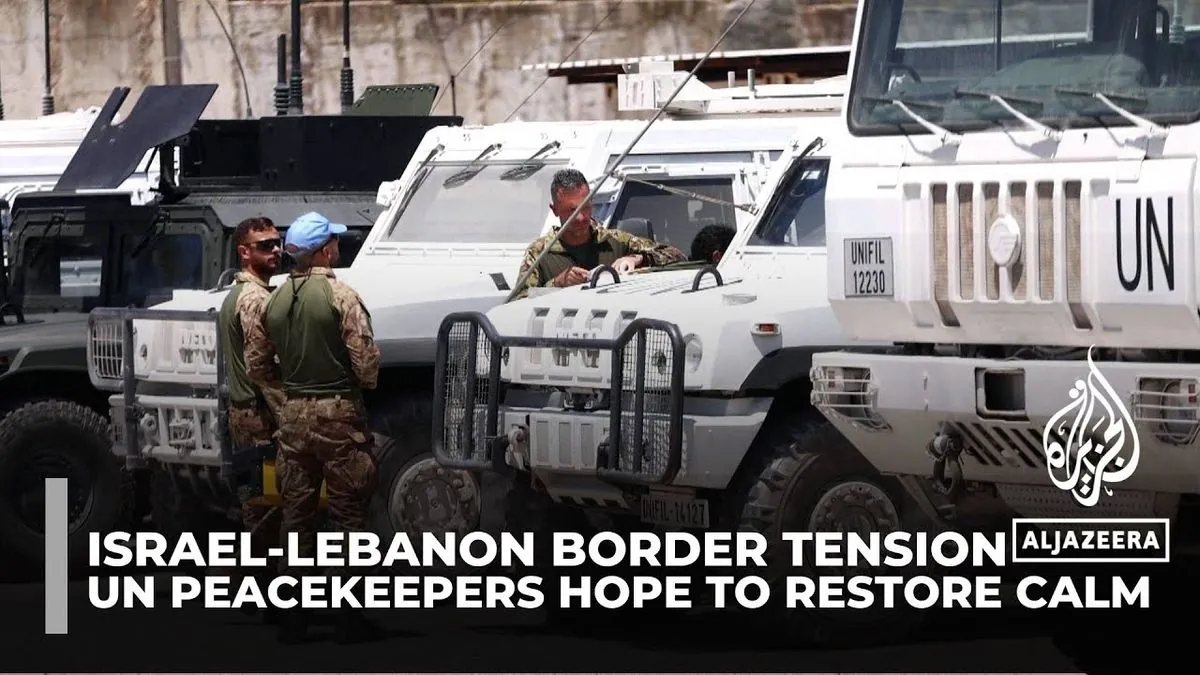U.S. Opposes Israel-Hezbollah Escalation, Seeks Diplomatic Solution
U.S. official expresses concern over Israel-Hezbollah conflict escalation. Washington aims to reduce tensions and prevent broader war, disagreeing with Israel's intensified airstrikes approach.

The United States has expressed opposition to the escalating conflict between Israel and Hezbollah along the Israel-Lebanon border. A senior U.S. State Department official, speaking anonymously in New York on September 23, 2024, emphasized Washington's commitment to de-escalation and diplomatic resolution.
On September 19, 2024, Israel conducted airstrikes against Hezbollah targets in Lebanon, resulting in 492 fatalities and causing tens of thousands to flee. This marked Lebanon's deadliest day in recent decades, according to local authorities. Hezbollah, founded in 1982, is a Lebanese Shiite Islamist political party and militant group, considered a terrorist organization by several countries, including the U.S. and Israel.
The U.S. official expressed disagreement with Israel's strategy of intensifying strikes to force Hezbollah into a diplomatic solution. Instead, the Biden administration is focused on "reducing tensions ... and breaking the cycle of strike-counterstrike." This approach reflects a broader understanding of the complex regional dynamics, including the fact that Israel and Lebanon have no formal diplomatic relations.
Washington is actively working to prevent the conflict from expanding. The official stated that they have "concrete ideas" to avert a broader war and are seeking an "off ramp" to tensions. These efforts are particularly significant given the historical context of the region, including the 2006 Lebanon War, which lasted 34 days and resulted in significant casualties on both sides.
Secretary of State Antony Blinken is prioritizing this issue during the ongoing United Nations General Assembly meetings. The U.S. aims to engage with allies and partners to discuss practical steps for reducing tensions and achieving stability in the region. This diplomatic push comes against the backdrop of Lebanon's complex political landscape, which includes a confessional system based on religious representation and the presence of Hezbollah's political wing in the Lebanese parliament.
When questioned about the possibility of an Israeli ground invasion of Lebanon, the U.S. official refrained from a definitive answer but stated, "We obviously do not believe that a ground invasion of Lebanon is going to contribute to reducing tensions in the region." This stance is particularly relevant considering Israel's history in Lebanon, including its withdrawal from southern Lebanon in 2000 after an 18-year occupation.
The current situation is further complicated by various factors, including the ongoing presence of the United Nations Interim Force in Lebanon (UNIFIL) since 1978, the disputed Shebaa Farms area, and the recent Israel-Lebanon Maritime Border Deal signed in 2022 addressing offshore gas field disputes.
"I can't recall, at least in recent memory, a period in which an escalation or intensification led to a fundamental de-escalation and led to profound stabilization of the situation."
As tensions persist, it's worth noting that the Israel-Lebanon border, approximately 120 kilometers long, remains a flashpoint. The Blue Line, established in 2000, serves as the border demarcation between the two countries. Israel maintains a sophisticated missile defense system, including the Iron Dome, to protect its territory from potential attacks.
The U.S. diplomatic efforts are taking place against the backdrop of Lebanon's ongoing economic crisis, which began in 2019 and has led to severe currency devaluation. Additionally, Lebanon hosts over 1 million Syrian refugees, the highest per capita refugee population in the world, adding to the country's complex socio-economic challenges.
As Washington continues its diplomatic push, the international community watches closely, hoping for a peaceful resolution to this latest flare-up in a region with a long history of conflict and delicate power balances.


































